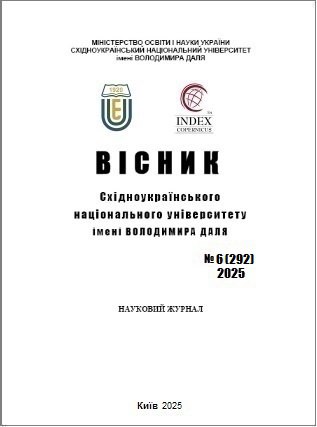Functional role of intellectual capital in the innovation economy
DOI:
https://doi.org/10.33216/1998-7927-2025-292-6-49-56Keywords:
intellectual capital, innovative economy, components, functions, enterprise, developmentAbstract
The article presents a comprehensive analysis of the functional role of intellectual capital within the framework of an innovation-driven economy. The study emphasizes the paradigm shift from the predominance of tangible and financial resources toward the growing importance of intangible assets, among which intellectual capital emerges as a critical determinant of sustainable development and competitive advantage. It is argued that modern economic systems increasingly rely on knowledge, creativity, professional competencies, organizational culture, and relationship networks, which collectively constitute the foundation of national and corporate intellectual potential. The conceptual essence of intellectual capital is clarified, and its structural components are examined in detail: human capital (knowledge, skills, experience, and competencies of personnel), structural capital (internal processes, technologies, databases, intellectual property, and corporate culture), and relational capital (external relationships, stakeholder trust, client loyalty, and reputation). The article substantiates that the synergy among these elements fosters innovation capacity, accelerates the transformation of knowledge into marketable outcomes, and ensures the adaptability of economic agents to technological and institutional changes. Special attention is paid to the challenges of intellectual capital development in the context of digital transformation and globalization. Key barriers to its effective deployment in the Ukrainian economy are identified, including insufficient investment in human development, weak integration between research institutions and business structures, and the underdevelopment of innovation infrastructure. Strategic approaches are proposed to enhance intellectual capital management, including the creation of digital platforms, educational reforms, and incentives for innovation culture development.
The article concludes that intellectual capital is not only a driver of innovation processes but also a core element in constructing a knowledge-based economic growth model. Further research directions involve the development of applied tools for evaluating intellectual capital performance and mechanisms for its integration into enterprise and regional governance systems.
References
1. Бобко Л. О., Мазяр А. В. Проблеми корпоративної соціальної відповідальності в Україні. Ефективна економіка. 2019. № 5. URL: http://www.economy.nayka.com.ua/?op=1&z=7043.
2. Бондарук Т. Г., Бондарук І. С. Економічна природа організаційно-економічного механізму соціальної відповідальності бізнесу. Науковий вісник Національної академії статистики, обліку та аудиту: зб. наук. пр. 2020. № 1–2. С. 57–64.
3. Євтушенко В. А. Оцінка корпоративної соціальної відповідальності: методи, об’єкти, показники. Вісник НТУ “ХПІ”. 2013. № 46 (1019). С. 53–63.
4. Кусик Н. Л., Ковалевська А. В. Методичний підхід до проведення оцінки ефективності соціально відповідальної діяльності підприємства. Проблеми економіки. 2013. № 3. С. 137–141.
5. Затейщикова О. О. Аналіз підходів до оцінки соціальної відповідальності бізнесу. Вісник соціально-економічних досліджень. 2014. № 2 (53). С. 189–194.
6. Новікова О. Ф., Дейч М. Є., Панькова О. В. та ін. Діагностика стану та перспектив розвитку соціальної відповідальності в Україні (експертні оцінки): монографія. Донецьк, 2012. 296 с.
7. Селіверстова Л. С., Лосовська Н. В. Підходи до формування організаційно-економічного механізму управління соціальною відповідальністю бізнесу. Економіка та держава. 2019. № 7. С. 13–16.
8. Станасюк Н. С., Пасінович І. І., Мурза В. М. Тенденції розвитку корпоративної соціальної відповідальності та методологічні аспекти її оцінювання. Сучасні питання економіки і права: зб. наук. праць. Київ: КиМУ. 2019. Вип. 2 (12). С. 31–43.
9. Kayla O'Neill. 16 CSR Facts You Need To Know. 2020. URL: https://www.globalgiving.org/learn/ listicle/csr-facts-you-need-to-know 2020
10. Stobierski Tim. 15 eye-opening corporate social responsibility statistics, Harvard business school online. 2021. URL: https://online.hbs.edu/blog/ post/corporate-social-responsibility-statistics
11. Nafi Jannatun. Different Types of Corporate Social Responsibility (CSR). 2018. URL: https://www.transparenthands.org/different-types-of-corporate-social-responsibility-csr/
12. Telford Nicola. A List Of Statistics That Demonstrate The Importance Of CSR. 2021. URL: https://viewsforchange.com/list-statistics-demonstrate-importance-csr/
13. Pacific Oaks College publications. Breaking down the 4 types of corporate social responsibility. 2021. URL: https://www.pacificoaks.edu/voices/ business/ breaking-down-the-4-types-of-corporate-social-responsibility/
14. Indeed Editorial Team. What Is Social Responsibility? Types and Examples. 2021. URL: https://www.indeed.com/career-advice/career-development/social-responsibility

